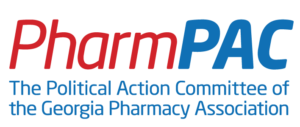Special Legislative Update: hemp and low-THC oil
Garnering much attention leading up to and during Georgia’s 2019 legislative session is the issue of THC and its treatment under Georgia law. Much of the discussion was driven by the federal passage of the 2018 Farm Bill which, amongst other things, redefined hemp to draw a distinction between marijuana and hemp — with hemp meaning the plant or any part with a THC concentration of not more than 0.3 percent; and allowed hemp cultivation and sale. This change, which occurred in late 2018, sparked confusion regarding legality of the sale at the state level of CBD oil containing THC.
Current Georgia law does not draw a distinction between marijuana and hemp, nor does it allow the sale of any THC oil in Georgia — hemp-derived or otherwise. However, if two bills that passed the general assembly become law (the governor has 40 days following legislative session to veto) there will be changes to Georgia’s status quo.
HB 213: The Georgia Hemp Farming Act
This bill looks to bring Georgia more in line with federal law as it relates to hemp with the purpose of, amongst other things, promoting expansion of Georgia’s hemp industry; encouraging research into growing hemp and creating hemp products; and enabling licensees and universities to promote the cultivation and commercial sale of hemp products.
The bill seeks to achieve these goals by:
- Defining hemp in the Georgia code to bring Georgia in line with the federal definition (THC level with a delta-9-THC concentration of not more than 0.3 percent on a dry weight basis);
- Allowing for issuance of hemp-grower licenses and a hemp-processor permits and prohibiting cultivation and processing without such a license or permit;
- Providing for oversight of cultivation and processing;
- Exempting hemp from the definition of marijuana in the Georgia code; and
- Carving hemp out of the list of schedule 1 controlled substances.
HB 324: An update to Haleigh’s Hope Act
At its core this legislation would allow the cultivation and sale of low-THC oil to patients with certain diseases authorized by law to receive it. Simple in explanation, but anything but in terms of application, this legislation has several moving parts. Below are some of the material highlights.
¶ Creation of the Georgia Access to Medical Cannabis Commission
The bill would create the Georgia Access to Medical Cannabis Commission with duties that include — but are not limited to…
- Execution of contracts to purchase or obtain low-THC oil from available legal sources with appropriated funds for use by registered patients;
- Establishing, maintaining, and administering a low-THC oil distribution network;
- Establishing procedures for inspecting production facilities and for quality control; and
- Issuing nontransferable university licenses for the production of low-THC oil.
¶ Dispensing of low-THC oil
By pharmacies (with BoP oversight). Significantly, the bill tasks the Georgia Board of Pharmacy with developing an annual nontransferable specialty-dispensing license for pharmacies to dispense low-THC oil to eligible patients, and it requires the BoP to create the appropriate rules and regulations.
By other retail outlets. The bill also authorizes the Access Commission to develop annual nontransferable dispensing licenses for retail outlets.
¶ Medical Cannabis Commission Oversight Committee
The bill establishes the four-member Medical Cannabis Commission Oversight Committee that is tasked generally with overseeing production in the state. More specifically, the Oversight Committee has authority to, amongst other things…
- Issue licenses related to production, growing, and manufacturing of low-THC oil;
- Coordinate with GBI to implement security plans;
- Establish procedures for granting licenses, testing products, and inspecting facilities; and
- Establish quality control and oversight of all low-THC oil production.
¶ Production licenses
- The Oversight Committee may issue up to two Class I production licenses after competitive application and review process enumerated in great detail in the bill (authorized to grow cannabis only in indoor facilities and limited to 100,000 square feet);
- The Oversight Committee may issue up to four Class 2 production licenses after a competitive application and review process (spelled out in great detail in the bill, but limited to growing cannabis only in indoor facilities and limited to 50,000 square feet)
Summary and preliminary assessment
With regard to the Hemp Farming Act, while not explicit, it appears that by carving hemp out of the definition of marijuana and from the Schedule I controlled substance list, the law should allow for the sale of hemp-derived CBD oil and other hemp products. However, because of Georgia’s definition of “low-THC” (not more than 5 percent THC) and its possible interplay with the hemp bill, questions remain. GPhA will look to engage with state officials and agencies should the bill become law.
With regard to the issue of low-THC oil, pharmacy now factors into the process in a major way. That said, pharmacies interested in participating should be wary as, with the exception of hemp, THC remains illegal on the federal level. There may be potential legal ramifications including criminal prosecution; and DEA number, payor agreement, loan, and lease exposure.
Should these bills become law, any pharmacy considering moving forward with the sale of hemp-based CBD oil or low-THC oil would be well advised to seek legal counsel to ensure compliance with the law.
This legislative update does NOT constitute any legal advice, does NOT establish any attorney-client relationship, and does NOT create any legal duty. Members and nonmembers should not rely on anything in this update when making a decision that may have legal consequences, but rather, should consult with qualified legal counsel.













